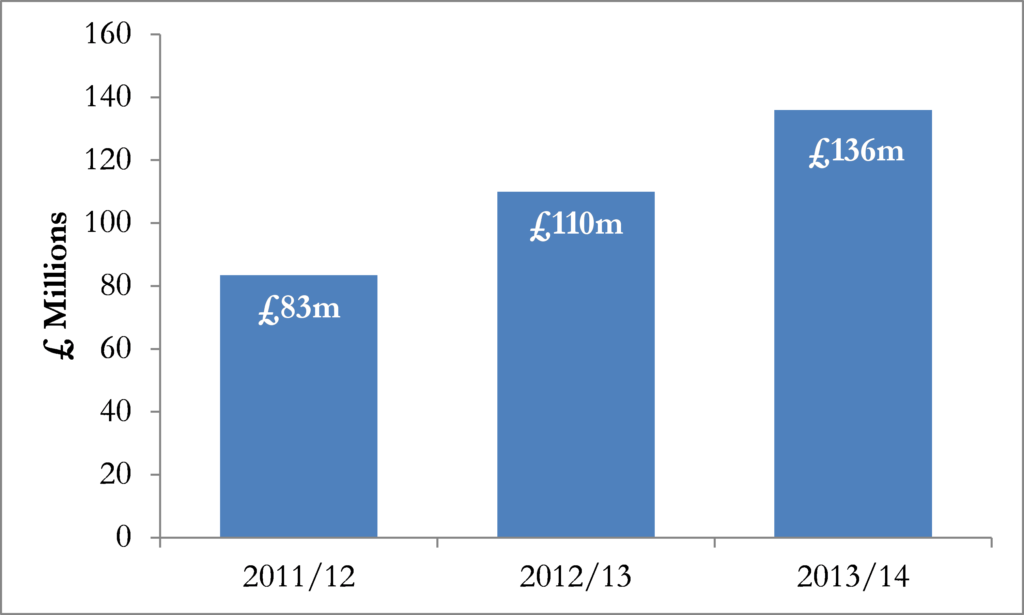HMRC’s investigations into individuals and small businesses resulted in a record-high £136 million extra Capital Gains Tax being collected in 2013-14, up 24% on the £110 million collected in 2012-13, according to our research.
We state that much of the extra Capital Gains Tax (CGT) collected as a result of HMRC’s investigation teams will come from property transactions, with HMRC increasingly targeting buy-to-let investors, many of whom lack the experience of applying CGT properly.
However, higher property prices and bigger profits from buy-to-lets means that there could be a greater incentive for taxpayers to deliberately understate the amount of their capital gains.
HMRC has become much more aggressive in its pursuit of unpaid CGT. We explain that despite the Government increasing the maximum rate of CGT in 2010 from 18% to 28%, the total amount of CGT paid to HMRC has fallen. Rising house prices and a recovering stock market have failed to deliver increased revenues from CGT.
We highlight that this is the second consecutive year HMRC has collected a record amount of extra tax as a result of these investigations. The £110 million collected in 2012-13 was itself up 32% on the £83 million extra collected in 2011-12.
CGT is a tax on the profit made when an asset that has increased in value is sold – it is payable on second properties, shares, and businesses.
Mark Giddens, Tax Partner and Head of our London Private Client team says: “The change in the mood music at HMRC means that property investors are now firmly in the crosshairs for tax investigations. There are a significantly greater number of buy to let landlords and private property investors in the UK than was the case 10 years ago, and they make tempting targets.”
“The culture of HMRC is now much more stringent than in previous years. Investigations into SMES and individuals are now a focus of the organisation is a way that that was not the case in previous incarnations. Additionally we are seeing a more hardnosed attitude in HMRC’s approach to investigations.”
“With this sharper focus at HMRC is not a surprise to see that enforcement cases are bringing in rising amounts of extra tax. The record results over the past two years point to an organisation with clearer priorities.”
“Overt political pressure is being exerted on HMRC to maximise the tax take, in particular through tax investigations. Despite the extra revenue raised the House of Commons Public Accounts Committee still recently criticised the speed of HMRC investigations, claiming a slow pace is putting tax at risk.”
HMRC’s investigations into underpaid CGT have yielded increasing returns



